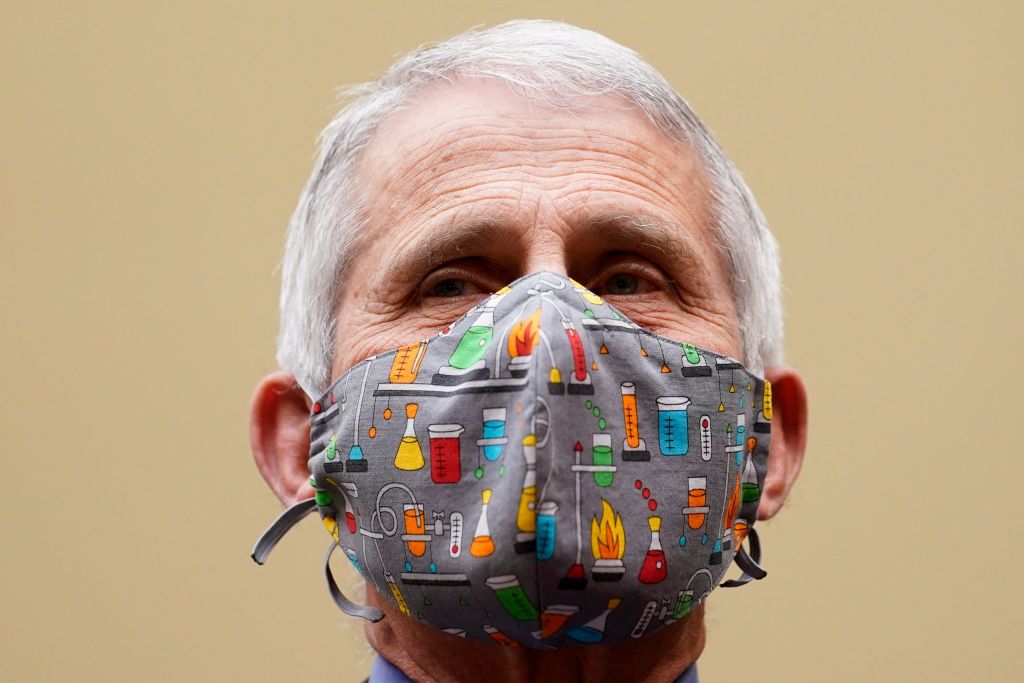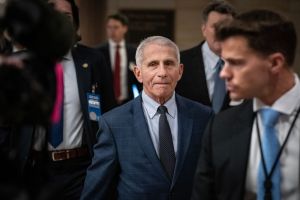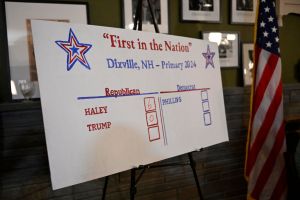Since the early days of COVID-19, public health experts have been frequently wrong and unreliable. ‘Trust the science’ now sounds like a sarcastic joke.
People want to know how long lockdowns and various mask requirements will last. When, or even if, they will get a vaccine. What about vaccine passports? The science doesn’t seem to know. So we listen to politicians.
President Joe Biden recently shed some light by announcing that fully vaccinated people no longer have to wear masks indoors and outdoors, in most settings.
Florida’s governor Ron DeSantis had previously weighed in with an executive order lifting all COVID-related restrictions statewide until a new law begins in July allowing him to overrule local governments.
Yet even with the push for vaccines, questions remain over everything. Will we need booster shots? What are the chances of testing positive for COVID as television host Bill Maher and eight members of the New York Yankees did after full vaccinations.
Though it’s reasonable to expect science to evolve and answers to change, it’s also reasonable to understand why many people are deeply skeptical any information coming from public health bodies.
Not long after the pandemic originated in Wuhan, a city of 11 million during 2019, Chinese authorities downplayed it as ‘viral pneumonia’. The World Health Organization echoed Beijing’s propaganda, claiming a ‘lack of evidence’ for human-to-human transmission.
Despite evidence of an outbreak in Wuhan, top US experts failed to help contain it. America’s Dr Anthony Fauci, opposed travel restrictions from China in early 2020, calling them ‘irrelevant’.
At that time, Fauci also opposed masks for the public. He wanted to save them for healthcare workers — yet he wasn’t forthright. Later he pushed for mask mandates. By early 2021, he suggested wearing two, calling it ‘common sense’.
He joined Democrats bashing Texas over the mask mandate repeal in early March, the so-called ‘Neanderthal mentality’. Yet in trying to explain why cases didn’t rise a month later, he told MSNBC ‘I’m not really quite sure’.
Things are even worse overseas. France and England have had three national lockdowns apiece. Germany drafted a law for one. Denmark proposed ‘corona passes’ for daily life. Brazil, Colombia, Peru, Argentina and Chile have instituted border closures and draconian curfews. Based on the violent reactions, it’s doubtful their health experts and political leaders are trusted either.
So where else are people looking for answers?
Many turn to reporters and pundits. Yet due to conflicting reports, forever changing storylines and some journalists stoking panic, listening to them can cause hopelessness.
Some put their trust in celebrities, such as Joe Rogan, the UFC commentator and podcaster. Rogan questioned the need for young, healthy people to get a vaccine — that prompted quick pushback from Dr Fauci. People magazine profiled 137 public figures this month who announced their vaccinations, mostly pictured masked while getting the jab, from Dwayne ‘The Rock’ Johnson to Dolly Parton.
Others rely on Twitter, Facebook and Instagram. That leads to widespread conspiracy theories; what some call an ‘infodemic’ and ‘doomscrolling’. Social media giants devised algorithms linking COVID information warnings with COVID posts. But everyone can see that the big-tech approved authorities also have faulty track records.
Others still turn to God — or the leaders of organized religion. A 2020 Pew Research Poll found 24 percent of Americans ‘strengthened their faith’, while just two percent said the opposite. Pope Francis joined Muslim religious leaders in prayer last May, and called for an entire month of ‘marathon’ prayer this month.
Meanwhile, the psychic business thrives. Forbes magazine cited a 136 percent rise in people seeking supernatural readings. The New York Post profiled a variety of professed clairvoyants, astrologers and self-help gurus who swear that business is good. Celebrities like Jennifer Aniston and Brad Pitt have endorsements on Laura Day’s website, an author and ‘intuitionist’ who said her Zoom sessions now get 1,200 or more registering.
Prediction markets are also doing well. Crowdfunding sites offer the public a chance at winning — or losing money. They operate on global platforms for monetary transactions, such as the Ethereum blockchain. Polymarket lists question and answer sets about COVID and vaccines. Investors there are bullish on vaccines and they have a good predictive record. Hypermind Predictions has its own section labeled ‘Coronavirus’. Their markets are more focused on lockdowns, comparing and contrasting the US and European countries.
Some check the major polls to see what ‘everybody else’ thinks. Recent ones by Associated Press-NORC and Monmouth University show vaccines have broad support, with roughly 70 percent and 80 percent in favor, respectively.
Finally, many rely on their own doctors, perhaps more trusted than strangers. They’re being pushed that way by the trade industry, including the American Medical Association.
So while we seek straight answers, it’s important to stay well informed and get a second, third or fourth opinion.
J.D. Gordon is a former senior national security and foreign policy adviser to several Republican national leaders. He served as a Pentagon spokesman during the George W. Bush administration and is a retired Navy Commander


















